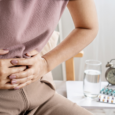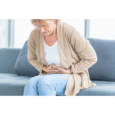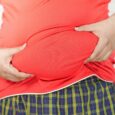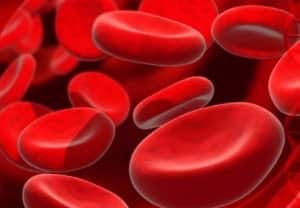Things You Need to Know About Menopause
Menopause occurs when a woman stops having regular menstrual periods. It is normal for this to happen anywhere between the early 40s and late 50s, with an average age of 52. Occasionally women in their 30s can experience a “premature” menopause.

As a woman approaches menopause, her menstrual periods start to peter out. This is usually a gradual process and there may even be a bit of irregularity for a while then several cycles where it’s back to being punctual! This is happening because the ovaries no longer make enough of the hormones that stimulate the development of the lining of the uterus, which is normally shed once a month during menstruation.
The decline in hormonal production by the ovaries starts during the mid-thirties, with marked decreases about three to five years before the final menstrual period. Menopause is believed to be over when a woman has not had a period for one year, and by this time only small amounts of the sex hormones are being produced.
It is unlikely a woman will get pregnant during menopause but if she is still getting periods, she is still ovulating and therefore can conceive. Therefore it is recommended to continue using contraceptive methods for one year after the last menstrual period.
The surgical removal of the ovaries will induce experience menopause immediately afterwards, but women who retain an ovary generally have a natural menopause. However, women who have had a hysterectomy tend to experience menopause within two years of the surgery.
Women who smoke cigarettes undergo menopause about 2 years earlier than women who don’t smoke.
Facts About Menopause
- Menopause usually starts between the early 40s and late 50s. However, it can also commence prematurely, in the 30’s
- The onset of menopause occurs when hormones (oestrogen and progesterone) are insufficient to produce regular menstrual periods
- Menopause is considered to be complete when a woman has not had a period for 12 months.
It is advisable to continue using contraception until menopause is completed (meaning you’ve not had a menstrual period for 12 months – assuming you were previously having regular monthly cycles).
- Menopausal symptoms include hot flushes, night sweats and vaginal dryness
- The majority of women have no major problems with symptoms
- Osteoporosis is the loss of bone that can commence after menopause – the lack of oestrogen increases the risk for this
- After menopause the heart attack risk for women begins to equal that of men
- Natural therapies can assist in the alleviation of difficult symptoms and assisting the transition.
Menopause is a normal, natural process. With proper support, you can get through it. Naturally.

4 Main Symptoms of Menopause
- Irregular (unpredictable) periods are often the first sign of menopause. Periods may change in nature, becoming shorter, lighter, heavier or longer. Some women also experience very heavy menstrual flows.
- Low levels of oestrogen affect several parts of the body – the vagina, the vulva, breasts, hair, and skin. These areas may start to seem drier than previously.
- Menopause can be a very emotional time for many women. While many enjoy no longer having periods or using contraception, depressed that at having reached this life-stage is not uncommon. The experience of the individual is very dependent on the fulfilment of desires to be a parent, attitudes towards fertility, sexuality and aging. Depression, irritability and mood swings are not uncommon during this time. Many symptoms are attributed to the menopause transition, including anxiety, memory loss fatigue, headache, joint pains and weight gain.
- The main symptoms associated are those connected to hot flashes, vaginal symptoms and trouble sleeping, which may be due to the tendence for flushes to occur at night.
What is a Hot Flash? (Hot Flush)
It is a sudden, brief sensation of heat, often over the entire body, caused by a transient dilation of the blood vessels of the skin and experienced by some menopausal women.
Hot flashes affect 2/3 menopausal women, and like other menopausal symptoms, they can be somewhat distressful for the sufferer. Hot flashes can commence before menopause, in the peri-menopausal stage, heralding the onset of menopause. However, for some women they become quite intense in the latter part of menopause, and rarely, can continue to occur for a number of years.
Hot Flashes may also be accompanied by other problems such as feelings of anxiety, rapid heart beat, nausea and headache. Most women can feel a hot flash coming on before it manifests – they feel the heat rising up to the face, with or without perspiration. They may feel chilled afterward.
Some substances that appear to trigger the attacks. Overly spicy foods should be avoided, as should alcohol, caffeine and cigarettes.
Fortunately the use of hormone replacement treatment is not as popular as it once was, as studies have shown that it increases the risk of heart attacks, strokes and some cancers. The alternative treatments available, ranging from aromatherapy, acupuncture or acupressure, massage and relaxation techniques to the use of herbal medicne and other natural supplements.
Not all remedies on the market for managing menopausal symptoms are effective. Professionally prescribed supplements often have very rigorous quality control and may acheive the desired effect more quickly. We are aware that all women are different and so an individualised approach must be taken.
Tips for a Smooth Menopause
- Exercise regularly. It keeps the metabolism going and is often helpful with depression, anxiety, stress and weight gain. Weight bearing exercise will help to maintain healthy bones which helps to prevent osteoporosis.
- Eat a nutritious diet rich in vegetables, fruits, and essential fatty acids. Cold water fish are great sources of essential fatty acids: examples include salmon, halibut, mackerel, sardines, tuna, and herring. Essential fatty acids help to support the nervous system which may be important for memory and brain function. They are also anti-inflammatory and are very important for skin health. Including soy in the diet may help with hot flashes and oestrogen regulation in your body.
- Nuts and seeds can also be added to the diet for a source of fibre, protein, and essential fatty acids. For example, flax seeds are an important source of healthy anti-inflammatory fats and can help regulate oestrogen levels.
- Avoid unnecessary sources of sugar, alcohol, and caffeine. Avoid smoking as it has been linked to more severe hot flashes and night sweats.
- Remember that balance in the body is what helps to create health. Make sure to nurture your mind to keep it quick, your body to maintain physical health, and your spirit and emotional life to keep you positive and happy.
Health Management Strategies for the Post Menopausal Woman
- Consume a nutritious diet
- Achieve and maintain a healthy body weight
- Ensure good liver and bowel function
- Maintain adequate exercise
- Monitor bone health to prevent osteoporosis
- If you are a diabetic, include flaxseed oil in your diet to reduce your risk of developing osteoporosis. Read the article here.
- Monitor your breast health with a regular breast thermogram
Find our exactly where your hormones are at! We have a range of functional tests that can provide insights and guide appropriate nutritional supplementation or herbal medicines.











